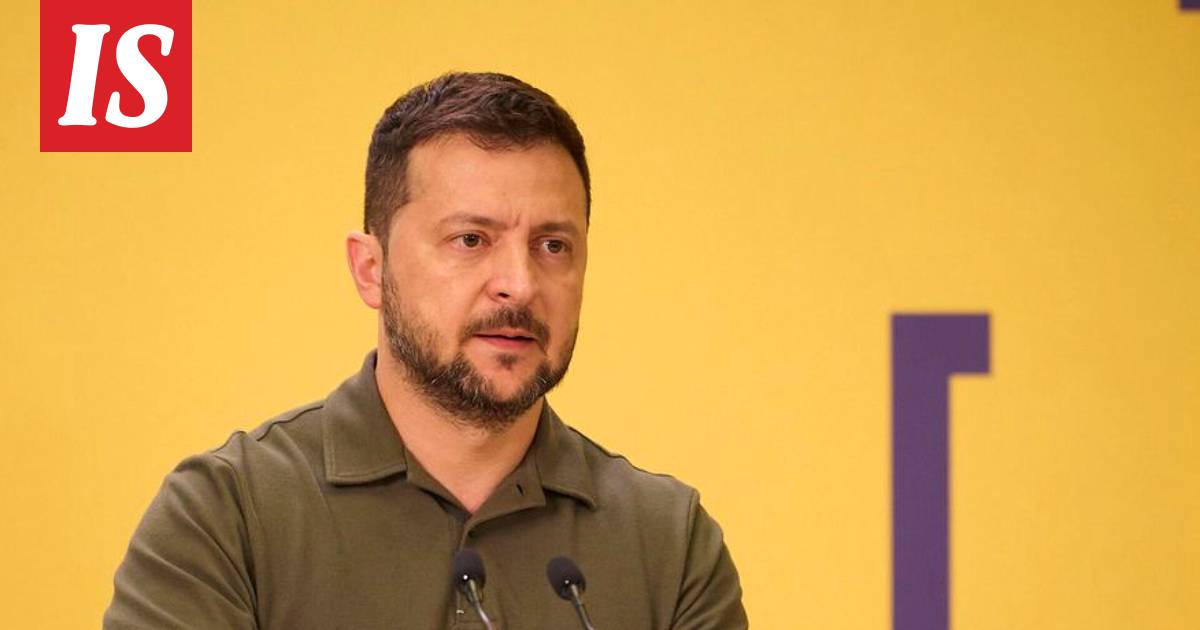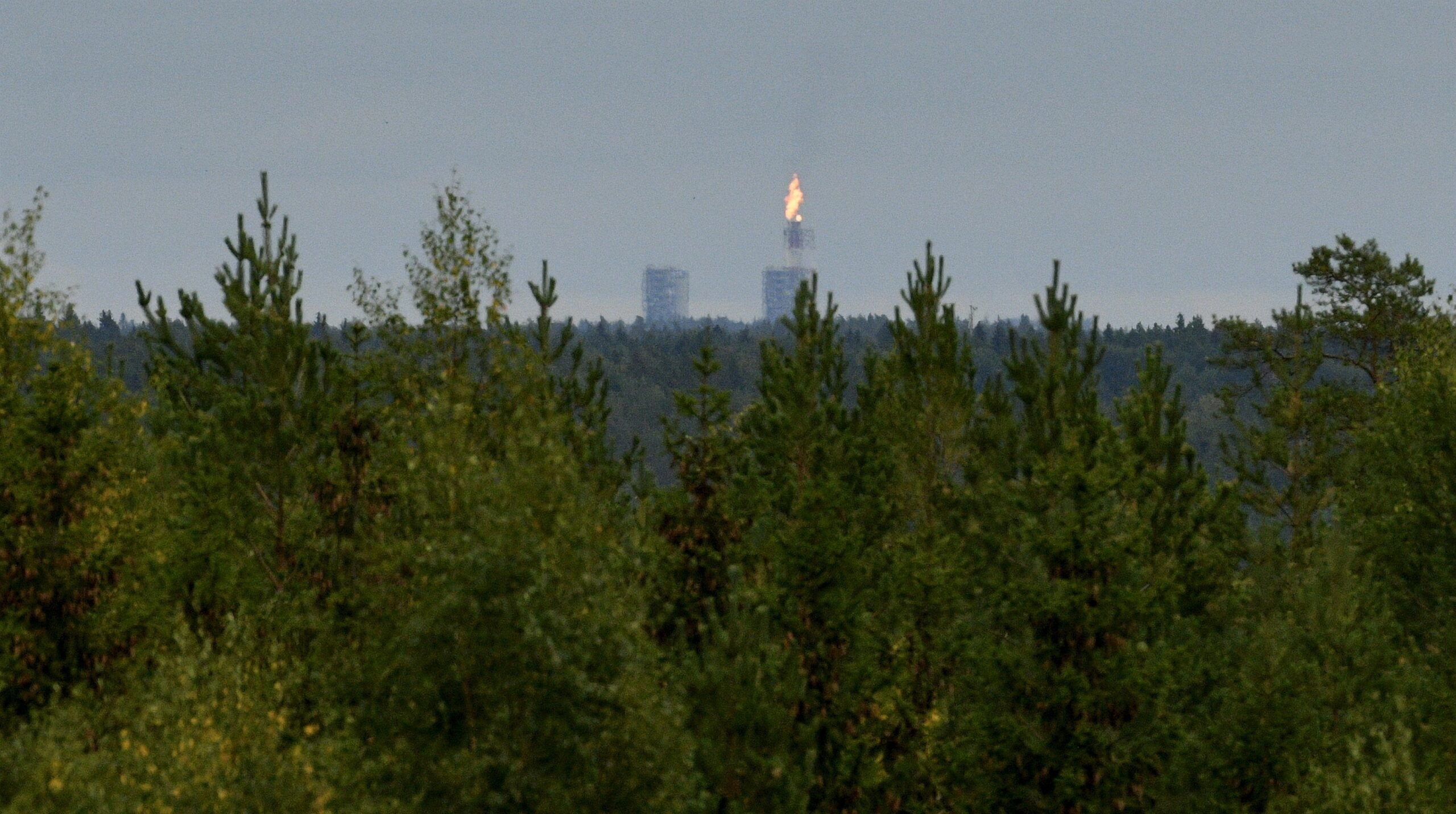Siellä on taas lähetelty kirjeitä. Kuulostaa aika epätoivoiselta. Kai niillä on ihan oikeita kirjekyyhkyjä, kun tuskin on kovin luottamista kyseisten maiden postilaitoksiinkaan.
Verkkolehden uusimmat jutut
-
Terästä: Liigan mestari on pysynyt 1 000 vuorokautta samanaLue lisää »
-
Stadin kirkkaat valot, tammikuu: HIFK:n iskukykyä on vaikea arvioida – onko Janne Pesonen tähtivahdin perässä?Lue lisää »
-
Färjestad BK eteni ensimmäistä kertaa historiassaan CHL-finaaliin, kohtaa Genève-Servetten kaataneen ZSC LionsinLue lisää »
-
Sport kiinnitti neljä ruotsalaista ensi kaudeksiLue lisää »
-
Adam Werner lähtee TPS:stä − suuntaa vuokralle kotimaahansaLue lisää »
-
NHL-Leijonien paluuturnausta uhkaa yleisöfarssi – ei ole ollut menekkiäLue lisää »
You are using an out of date browser. It may not display this or other websites correctly.
You should upgrade or use an alternative browser.
You should upgrade or use an alternative browser.
Venäjä hyökkää Ukrainaan
- Viestiketjun aloittaja Osmo Rapeli
- Alkaa
- 11 463 955
- 66 461
Lisää vaihtoehtoja
Ketjuun kirjoittaneetBrent Sapergia
Jäsen
- Suosikkijoukkue
- KalPa
Pikku-Mikosta Pikku-Vladiin -urakaari.Jos Putinista tehdään satiirikomedia, niin Kari Ketosen kansainvälinen läpimurto olisi Putinin rooli.
Ketonen siis hoitaa Putlerin roolin. Medvedevin näyttelijä olisi tietysti Pikku-Kakkosesta tuttu Ransu-koira, jolla Ketosen nyrkki syvällä rektumissa. Lavroviksi ehdottaisin hieman kansainvälisempää kasvoa, joten rooliin sopisi loistavasti Sarah Jessica Parker.Mikko Töyssy voisi vetää Medvedevin roolin. Mervi Tapola olisi sopinut hienosti Zaharovaksi ja mistä vain raviradalta löytyy näyttelijä Lavroviksi.
Ron Perlman voisi hoitaa vähintään tämän stuntit ja Solovyovin CCCP kuosiin sopisi hyvin Paavo Lipponen.Lavroviksi ehdottaisin hieman kansainvälisempää kasvoa, joten rooliin sopisi loistavasti Sarah Jessica Parker.
Aake Kalliala nykypäivän Medvedeviksi, Zaharova sitten Leena Meriläinen tai Laura Malmivaara, Santeri Kinnunen Lavroviksi. Lisäksi Juha Veijonen Peskoviksi ja Sergey Naryskinia esittää Robert Enckell,Mikko Töyssy voisi vetää Medvedevin roolin. Mervi Tapola olisi sopinut hienosti Zaharovaksi ja mistä vain raviradalta löytyy näyttelijä Lavroviksi.
Viimeksi muokattu:
Melitopoliin sijoitettu toinen krematorio
Lahjo tai kuole:

 www.is.fi
www.is.fi

Tuhannet ukrainalaismiehet ovat maksaneet itsensä pois armeijasta – Zelenskyi puhuu nyt suunsa puhtaaksi
Ukrainan presidentti kertoi asiasta kansallisen turvallisuus- ja puolustusneuvoston tekemään tutkimukseen vedoten.
Loppuu kohta se SMO:n arvostelu kokonaan. Kolme Kremliä liian tehottomasta tavasta tappaa ukrainalaisia kritisoivaa sotabloggaria on määrätty pidätettäväksi
.
Russian channel 'Thirtheenth' run by Russian soldier Egor Guzenko fighting in the Kherson region, claims that the Department of Military Counterintelligence in Russia received the task to detain three well known Russian milbloggers. Among them is Romanov, who recently exposed all kinds of problems in the southern occupied regions in the Russian ranks.
.
Russian channel 'Thirtheenth' run by Russian soldier Egor Guzenko fighting in the Kherson region, claims that the Department of Military Counterintelligence in Russia received the task to detain three well known Russian milbloggers. Among them is Romanov, who recently exposed all kinds of problems in the southern occupied regions in the Russian ranks.
Diktatuurien toimintalogiikassa on verrattain paljon yhtymäkohtia hiekkalaatikoiden ja yläkoulun pihojen dynamiikkaan. Mitä heikommin menee, sitä selkeämmin tämä näkyy. Lupaavia merkkejä!Loppuu kohta se SMO:n arvostelu kokonaan. Kolme Kremliä liian tehottomasta tavasta tappaa ukrainalaisia kritisoivaa sotabloggaria on määrätty pidätettäväksi
Jenkeiltä Vampyyreja ryysyjen droonien pudotukseen.
Ulkoministeri Kulebalta tiukkaa tekstiä vastahyökkäyksen arvostelijoille.
– Vastahyökkäyksen hitaan tahdin kritisoiminen on kuin sylkisi ukrainalaissotilaan naamalle. Hän uhraa henkensä joka päivä edeten ja vapauttaen kilometrin ukrainalaista maata joka päivä.
– Kehottaisin kaikkia kritisoijia pitämään turpansa kiinni, tulla Ukrainaan ja yrittää vapauttaa yksi neliösenttimetri itse.
Ulkoministeri Kulebalta tiukkaa tekstiä vastahyökkäyksen arvostelijoille.
– Vastahyökkäyksen hitaan tahdin kritisoiminen on kuin sylkisi ukrainalaissotilaan naamalle. Hän uhraa henkensä joka päivä edeten ja vapauttaen kilometrin ukrainalaista maata joka päivä.
– Kehottaisin kaikkia kritisoijia pitämään turpansa kiinni, tulla Ukrainaan ja yrittää vapauttaa yksi neliösenttimetri itse.
Kaatuneiden omaisille luvattuja Lada-rahoja on huvennut niin kovaa vauhtia, että ukrainalaisten natsien hävittämiseen tarkoitettuja krematorioita joudutaan käyttämään omien poikien paistamiseen.Melitopoliin sijoitettu toinen krematorio
Brittiläinen puolustusalan yritys BAE Systems ilmoitti tänään perustaneensa Ukrainaan paikallisen yksikön. Yhtiö kertoi myös allekirjoittaneensa Ukrainan hallituksen kanssa sopimuksia, joiden avulla sitä autetaan tehostamaan aseiden ja muiden varusteiden tuotantoa.
Eikös Huhtasaaren Laura olisi täydellinen Zaharova eikä tarvisi edes näytellä!!Aake Kalliala nykypäivän Medvedeviksi, Zaharova sitten Leena Meriläinen tai Laura Malmivaara, Santeri Kinnunen Lavroviksi. Lisäksi Juha Veijonen Peskoviksi ja Sergey Naryskinia esittää Robert Enckell,
Tässä yhden pidätysLoppuu kohta se SMO:n arvostelu kokonaan. Kolme Kremliä liian tehottomasta tavasta tappaa ukrainalaisia kritisoivaa sotabloggaria on määrätty pidätettäväksi
.
Russian channel 'Thirtheenth' run by Russian soldier Egor Guzenko fighting in the Kherson region, claims that the Department of Military Counterintelligence in Russia received the task to detain three well known Russian milbloggers. Among them is Romanov, who recently exposed all kinds of problems in the southern occupied regions in the Russian ranks.
Eikös Prigo voisi tämän jälkeen esittää ihan itseään?Nosferatun kreivi Orlok esittää Prigozhinia.
Posilaarin oheen myös hieman jäitä hattuun. Kirjoittaja arvelee Ukrainan tarvitsevan nyt operatiivisen paussin ja kierrättävän joukkojaan ja kalustoaan
Verboven sijainti laakson pohjalla ei ole ihanteellinen hyökkäyssuunta, mutta luo uhkaa venäläisjoukkojen sivustaan. Ylänköalue on silti vallattava ja myös seuraavat puolustuslinjat vaativat aikaa ja resursseja.
Kirjoittaja varoittaa olemasta liian optimistinen nopean etenemisen osalta.
Verboven sijainti laakson pohjalla ei ole ihanteellinen hyökkäyssuunta, mutta luo uhkaa venäläisjoukkojen sivustaan. Ylänköalue on silti vallattava ja myös seuraavat puolustuslinjat vaativat aikaa ja resursseja.
Kirjoittaja varoittaa olemasta liian optimistinen nopean etenemisen osalta.
Motti-Masa
Jäsen
Jasper Pääkkönen on Hitler tai Putler, Peter Franzen on Zelensky ja Martti Suosalo on Zaharova. Näin minä sen näkisin.
Lukasenko ei kuulemma antanu käskyä ampua Ukrainan Pihkovaan suunnanneita droneja alas
Update on the drone attack on the Rus airbase in Pskov: Belarusian air defensives observed the drones, reported them to command, but never received authorization to fire due to orders from Lukashenko not to interfere in the conflict. Putin: "Luuuukiiieee! You got some splainin' to do..." Per the non-affiliated TG Channel
@KremlinRU
- "Several sources in Minsk confirmed that President Lukashenka had ordered an investigation into the reasons for the mass drone overflight of Pskov through the territory of Belarus. The KGB of Belarus sent a report to the president of Belarus, which says that the country's air defense did not react to the drone overflight, while the duty group informed the command and the leadership of the Ministry of Defense, but there was no order to shoot down. An official who previously worked in Lukashenka's entourage believes that Lukashenka gave an order not to interfere in the conflict and explained to Moscow that the drones could be launched by saboteurs and guerrillas who were being held back by the Belarusian army."
Update on the drone attack on the Rus airbase in Pskov: Belarusian air defensives observed the drones, reported them to command, but never received authorization to fire due to orders from Lukashenko not to interfere in the conflict. Putin: "Luuuukiiieee! You got some splainin' to do..." Per the non-affiliated TG Channel
@KremlinRU
- "Several sources in Minsk confirmed that President Lukashenka had ordered an investigation into the reasons for the mass drone overflight of Pskov through the territory of Belarus. The KGB of Belarus sent a report to the president of Belarus, which says that the country's air defense did not react to the drone overflight, while the duty group informed the command and the leadership of the Ministry of Defense, but there was no order to shoot down. An official who previously worked in Lukashenka's entourage believes that Lukashenka gave an order not to interfere in the conflict and explained to Moscow that the drones could be launched by saboteurs and guerrillas who were being held back by the Belarusian army."
Aika raskasta luettavaa tässä ketjussa nuo casting viestit. Kiinnostaakohan ne kiviäkään :-P
Verkkouutisten mukaan joissain asioissa ei ole vuodessa tapahtunut positiivista kehitystä:

 www.verkkouutiset.fi
www.verkkouutiset.fi

 www.verkkouutiset.fi
www.verkkouutiset.fi
Lisäksi: Zelenskyi on sanonut, että Ukraina tarvitsee 160 F-16-hävittäjää! Sitä määrää länsi ei tule antamaan - ja taas ihmetellään, että miksei Ukrainan vastahyökkäys etene.
/img-s3.ilcdn.fi/168e73b52fb2e60703d4e9471dbb4b4bb93b388a0011c34609022f5b554b7c6d.jpg)
 www.iltalehti.fi
www.iltalehti.fi
Verkkouutisten mukaan joissain asioissa ei ole vuodessa tapahtunut positiivista kehitystä:

Venäjältä tuodaan enemmän kaasua kuin koskaan – "Tyrmistyttävää" | Verkkouutiset
Venäjältä tuodaan enemmän kaasua kuin koskaan – "Tyrmistyttävää" | Verkkouutiset
 www.verkkouutiset.fi
www.verkkouutiset.fi

Venäläisturistit käyttävät Suomea kauttakulkuun - "Miksi Norja ja Ruotsi yhä myöntävät viisumeita?" | Verkkouutiset
Venäläisturistit käyttävät Suomea kauttakulkuun - "Miksi Norja ja Ruotsi yhä myöntävät viisumeita?" | Verkkouutiset
 www.verkkouutiset.fi
www.verkkouutiset.fi
Lisäksi: Zelenskyi on sanonut, että Ukraina tarvitsee 160 F-16-hävittäjää! Sitä määrää länsi ei tule antamaan - ja taas ihmetellään, että miksei Ukrainan vastahyökkäys etene.
/img-s3.ilcdn.fi/168e73b52fb2e60703d4e9471dbb4b4bb93b388a0011c34609022f5b554b7c6d.jpg)
IL seurasi Ukrainan sotaa hetki hetkeltä – Lue päivitykset ajalta 20.12.2023–14.3.2024
Iltalehti seuraa Ukrainan sotaa hetki hetkeltä.
Katoin Rehin uusimman videon, missä hän luki tuon Girkin postauksen tuosta presidenttikisaan osallistumisesta. Täytyy sanoa, että kunnon trollausta Girkiniltä.
Hmm...itse itseäni lainaten, taisin kirjoitella jotain tällaista alkukesästä. Nyt tuolla näyttäisi jotain tapahtuvan:Juuri näin. Itse veikkaan, että Vuhledar on alue mistä kokeilevat päästä läpi. Saattaa olla, että Ukrainalla on ollut myös jonkin asteinen amfibiosuunnitelma Dneprin yli ja sitä joudutaan nyt muokkaamaan. Ja onhan tuolla vielä lännemmässä Kinburnin niemimaa, jolla uskon olevan jonkinlaista roolia vastahyökkäyksen kunnolla käynnistyessä. Saattaa tosiaankin olla, että padon tuho tuli örkeillekkin yllätyksenä jos jo ennestään vaurioitunut pato on vain yksinkertaisesti murtunut liian suuren vesimassan takia. Tätä pitäisi Ukrainan hyödyntää, luulisi jonkinlaista epäjärjestystä olevan tuolla Dneprin eteläpuolelle kaivautuneissa örvelöissä.
Yksi hyvin merkittävä lisä tukeen olisi Ukrainan oman sotateollisuuden tukeminen. Näin varmaan tietysti jo tapahtuukin jossain määrin mutta lännen kannalta voisi olla helppompaa tunkea tukea (rahaa, tietämystä, materiaalia,..) Majavien valistamiseen kuin oman sotakaluston luovuttamiseen. Toki F-16, Leopardit,... oma lukunsa. Se olisi myös pitemmällä tähtäimellä Ukrainan etu. Ja myös Naton.
Tää tuo ihan mielenkiintoisen lisän, koska ryysyjen tutkatkaan eivät tunnista noita pahvidrooneja. CNN:n mukaan noiden lentokenttä-iskujen takana olisivat Venäjän vapaaehtoisjoukot yhteistyössä Ukrainan turvallisuuspalvelu SBU:n kanssa.
Ukrainan Australian-suurlähettiläs Vasyl Myroshnytshenko vahvisti myös asian.
Tossa testataan kyseisiä drooneja.
Ukrainan Australian-suurlähettiläs Vasyl Myroshnytshenko vahvisti myös asian.
Tossa testataan kyseisiä drooneja.
Kirjaudu sisään, jos haluat vastata ketjuun. Jos sinulla ei ole vielä käyttäjätunnusta, rekisteröidy nyt! Kirjaudu / Rekisteröidy
Verkkolehden uusimmat jutut
-
Terästä: Liigan mestari on pysynyt 1 000 vuorokautta samanaLue lisää »
-
Stadin kirkkaat valot, tammikuu: HIFK:n iskukykyä on vaikea arvioida – onko Janne Pesonen tähtivahdin perässä?Lue lisää »
-
Färjestad BK eteni ensimmäistä kertaa historiassaan CHL-finaaliin, kohtaa Genève-Servetten kaataneen ZSC LionsinLue lisää »
-
Sport kiinnitti neljä ruotsalaista ensi kaudeksiLue lisää »
-
Adam Werner lähtee TPS:stä − suuntaa vuokralle kotimaahansaLue lisää »
-
NHL-Leijonien paluuturnausta uhkaa yleisöfarssi – ei ole ollut menekkiäLue lisää »